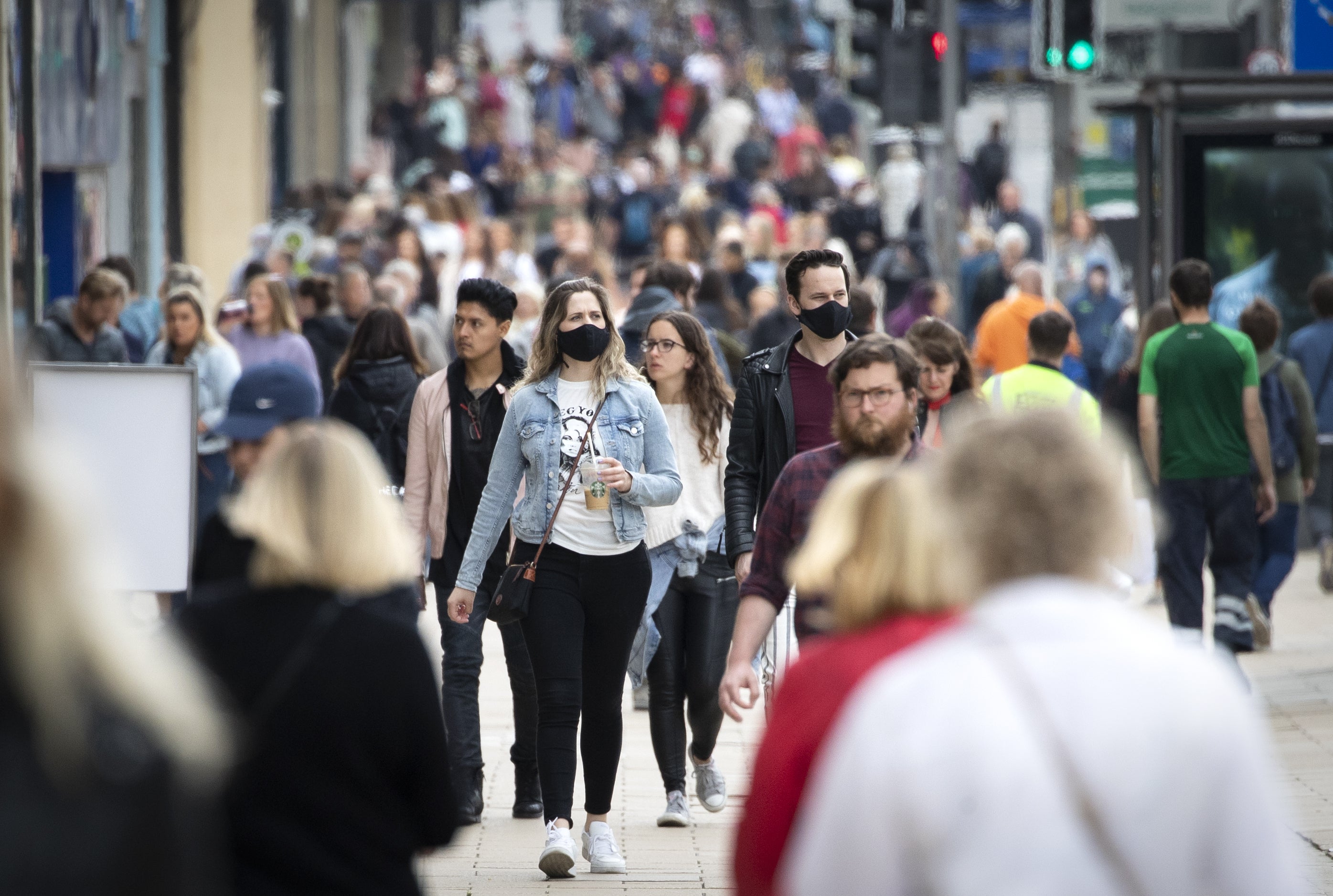Retail sales fall for third straight month as inflation hits spending – report
The latest BRC-KPMG monitor showed total retail sales dropped by 1% in June despite a boost from the Queen’s jubilee celebrations.

Retailers are seeing sales tumble at a rate “not seen since the depth of the pandemic” as shoppers rein in spending in the face of soaring inflation, according to a report.
The latest monthly BRC-KPMG retail sales monitor showed total retail sales dropped by 1% in June – the third fall in a row as the cost of living takes its toll on consumers.
Even a boost from the Queen’s Platinum Jubilee celebrations failed to offset the slowdown in spending.
The figures showed a decrease in shopping activity following average growth of 0.8% over the past three months.
On a like-for-like basis, sales dropped 1.3% year-on-year in the five weeks to July 2.
Helen Dickinson, chief executive of the British Retail Consortium (BRC), said: “Sales volumes are falling to a rate not seen since the depths of the pandemic, as inflation continues to bite, and households cut back spending.
“Discretionary purchases were hit hard, especially white goods and homeware, while consumers also traded down to cheaper brands in food and non-food alike.
“While the jubilee weekend gave food sales a temporary boost, and fashion sales benefitted from the summer holiday and wedding season, this was not enough to counter the substantial slowdown in consumer spending.”
Separate figures from Barclaycard revealed that 91% of consumers were concerned last month about the impact rising household bills are having on their personal finances, compared with 88% in May.
There are fears that the pullback in consumer spending caused by rampant inflation could tip the economy into a recession, as defined by two quarters in a row of falling output.
Inflation has already hit a 40-year high of 9.1% and is set to soar past 11% in the autumn as the energy price cap is set to be hiked once more.
The BRC is calling for the Government to help the retail sector by taking action to lower business rates as firms face being “caught between significant rising costs in their supply chains and protecting their customers from price rises”.
The sales monitor data showed non-food retail sales have suffered the most amid the cutback on discretionary spending, down 3.3% on a total basis in the three months to June and 4.2% lower on a like-for-like basis.
The report said non-food sales were in decline on a monthly basis.
But food sales increased by 2.2% on a total basis over the three months to June, up 1.6% on a like-for-like basis, in a sign that consumers are focusing on essentials.
On a monthly basis, food sales lifted, the report added.
Gabriella Dickens, senior UK economist at Pantheon Macroeconomics, said that while the immediate picture shows belt tightening, consumer spending should strengthen later this year.
She said: “The Government’s announcement for an extra £14 billion in measures to support households in the second half of this year, likely equal to nearly 2% of their disposable incomes over these six months, combined with the sharp rise in the annual income threshold for national insurance contributions… should ensure that real disposable incomes start to rise again from the third quarter, supporting retail sales.”
Bookmark popover
Removed from bookmarks